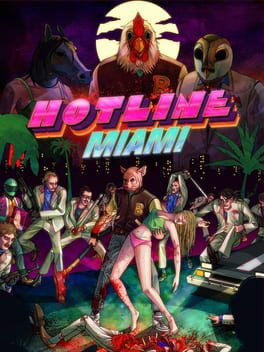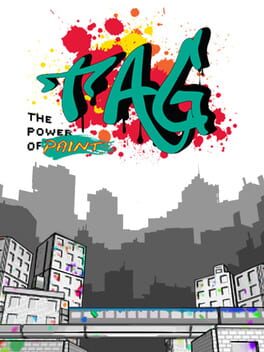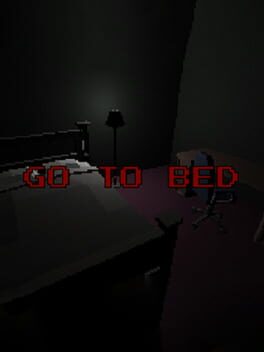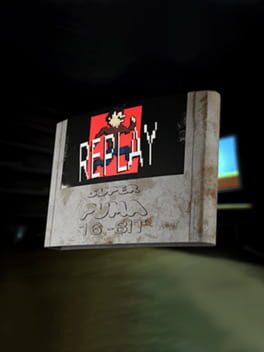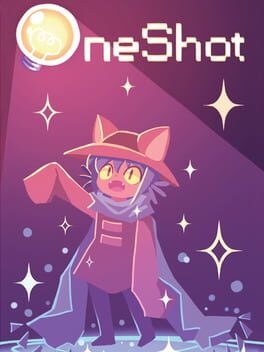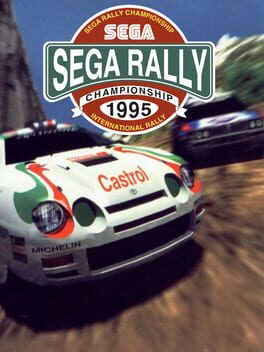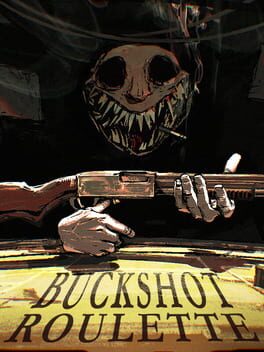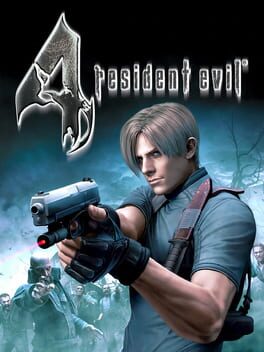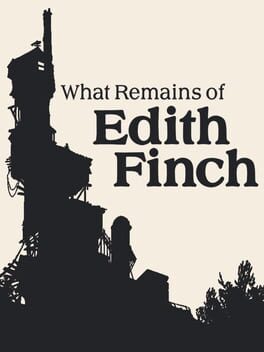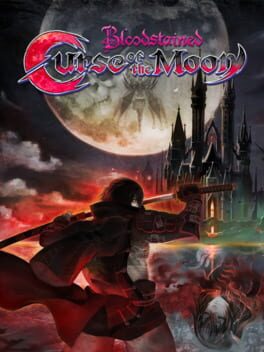truen0
2012
2023
2023
2024
2022
2016
as well as being the game that defined arcade handling, sega rally is a truly unique experience in colour, sound and atmosphere. i wonder how magical it must have been to play this in an arcade back in the day. whilst the colours are very vibrant, they're never over-saturated, with cars that are impressively accurate and detail-rich considering the era's limitations. however, the strongest point of the game is the sensational driving, which is still the best in arcade terms. the stages are unique and progress in difficulty well. the music and sounds are crazy (game over yeaaah). i'm just not sure if the reason i can't unlock the third car was because i played the ps2 version, despite having completed the extra stage in first.
2023
experimental and memorable, this game defines what indie games are meant to be. i can't find the right words to describe the atmosphere of this game, it truly feels like i've taken ketamine in someone's bathroom. the colour palette almost screams "abandon god and all your hopes". the "narrative" creates a truly immersive aura, with all the little secrets making you feel like you're delving into something sinister. the gameplay loop is quite unique, and although repetitive, it serves the game perfectly. a very well spent 30 minutes.
2005
i was impressed by how the tank mechanics grew on me, while at the same time i got bored with the overall game's progression. the artwork feels a little uneven, but that's not a big problem, the game itself is beautiful for a ps2 game. the narrative seems pretty dated, and plots are a poorly tied together in order to justify the game. the tank gameplay was unbearable at first, but as i got used to it, i started to love it. the slow movement of the enemies, stopping to shoot, pausing to use items, is the perfect mix of action and strategic pauses. the game isn't difficult, but some quick time events and cinematic scenes are quite annoying. in the end, i can't pinpoint why, but the game gradually lost me; i started out loving its style, but ended up getting turned off by the narrative.
2015
"maybe he just likes to build prisons" - as an artist who often works exclusively for myself, this game really got me thinking. what is art if not the complex meanings we give to ordinary things? here, source 1's use brings a liminal feel to it, adding to the narrative through its limitations. the way the story is told through a series of modules is quite special, and the voiceover does a great job at making you buy his view. the closing is quite a wake-up call for those who, like me, tend to overly romanticize art. it is simply a collection of notes or scribbles that may reflect the author's inner self, but not always in ways that are easily understood. not everything needs to be perfect to be shared with the world, but not everything is meant to be released either. sometimes, it is created solely for the sake of creation.
what remains of edith finch captures the subtle details that only those who have grown up in dysfunctional families notice, and manages to make you empathize with a reality very different from your own. everything in this game speaks to you; the foam that seals the doors screams the family's history, the house's disconcerting architecture confuses you, and every passage you open reminds you that maybe you weren't meant to be here. the stories of each of the finches, some of them brilliant, serve as a backdrop to the mastery of storytelling. this game manages to tell stories in so many brilliant ways that any attempt to describe it would be futile (i'll be dreaming about fish heads tonight). feeling responsible for perpetuating a "curse" as a child unearthed things i didn't know i still had to deal with. the game is extremely linear, not that it's a flaw for the genre, but the protagonist was almost begging me to descend into her monologue while i wanted to keep exploring the upper floor. anyway, this linearity helps to create a lovely rhythm for the narration, which, together with the way the subtitles appear, creates a hypnotic flow - the perfect definition of an interactive movie; you'll want to finish the game in one go. the bittersweet musical style struck a nostalgic chord with me, and the silences were used extremely well. unfortunately, the game did not run well on my notebook, so i had to accept the 25 fps and the square shadows, but i don't think that took anything away from the experience. this game made me want to return to walking simulators and narrative-driven games (lets finally give yumi nikki a shot).
2007
It is crazy how portal manages to withstand the test of time in every way and still (perhaps unintentionally) discuss late-stage capitalism in a concise manner. it still has an unsettling atmosphere that ages like wine thanks to the emptiness and unsettling feeling the source engine brings nowadays. even though it pioneered this kind of sarcastic meta-narrative, portal still knows how to give you goosebumps as you discover the secrets of this facility. i'll probably be playing half life and checking out the comics just to see this universe from a new viewpoint. although the gameplay has aged a little, surprisingly it still manages to be a fluid puzzle game without being too easy (which is quite a feat). the music here goes well, and the ambient sounds from the source engine when it's all quiet are frightening. lastly, even though i'm not a big fan of puzzles, the fluidity of this makes me want to try out portal 2.
i have not played any classic nes castlevania games, nor do i have any desire to do so. however, i appreciate the elements that this game has absorbed from castlevania. the game's clearly inspired theme isn't appealing, but it doesn't get in the way either, as the game manages to use very unique palettes and create levels and bosses that are truly ridiculous in their beauty - with the exception of basic enemies, which are quite generic. the intentionally limited retro gameplay may take some time to master, but it ultimately provides a highly rewarding experience as you move through the levels at a slower pace. while the level design may not be particularly innovative, the game offers multiple routes that can be accessed using different characters. the game is not excessively challenging, except for a lack of extra lives, but there are a few instances of unfairness in certain sections as well as some boss fights. as far as the narrative goes, it's a clichéd revenge story reminiscent of castlevania that forces you to replay the entire game with only slightly different bosses in order to see the "true ending" of a badly written story (seriously, i'm not going to subject myself to all of that). audio and music are what you'd expect from an 8-bit game, and the game runs smoothly on both the 3ds and my laptop. to sum it up, it's a visually stunning game with pleasing controls that are unfortunately overshadowed by some questionable design choices, but nonetheless made me curious about ritual of the night.
2017
i am not sure if this enhances the replay value or if it takes away some fun for less committed players. however, as i kept playing, i realized that the most rewarding parts of this game are entirely optional. things like secret bosses, npc interactions, "true" endings, and the tons of extra content you don't even need to be aware in order to beat it. i admit that getting to understand every part of this little bug world is a bit of an experience.
